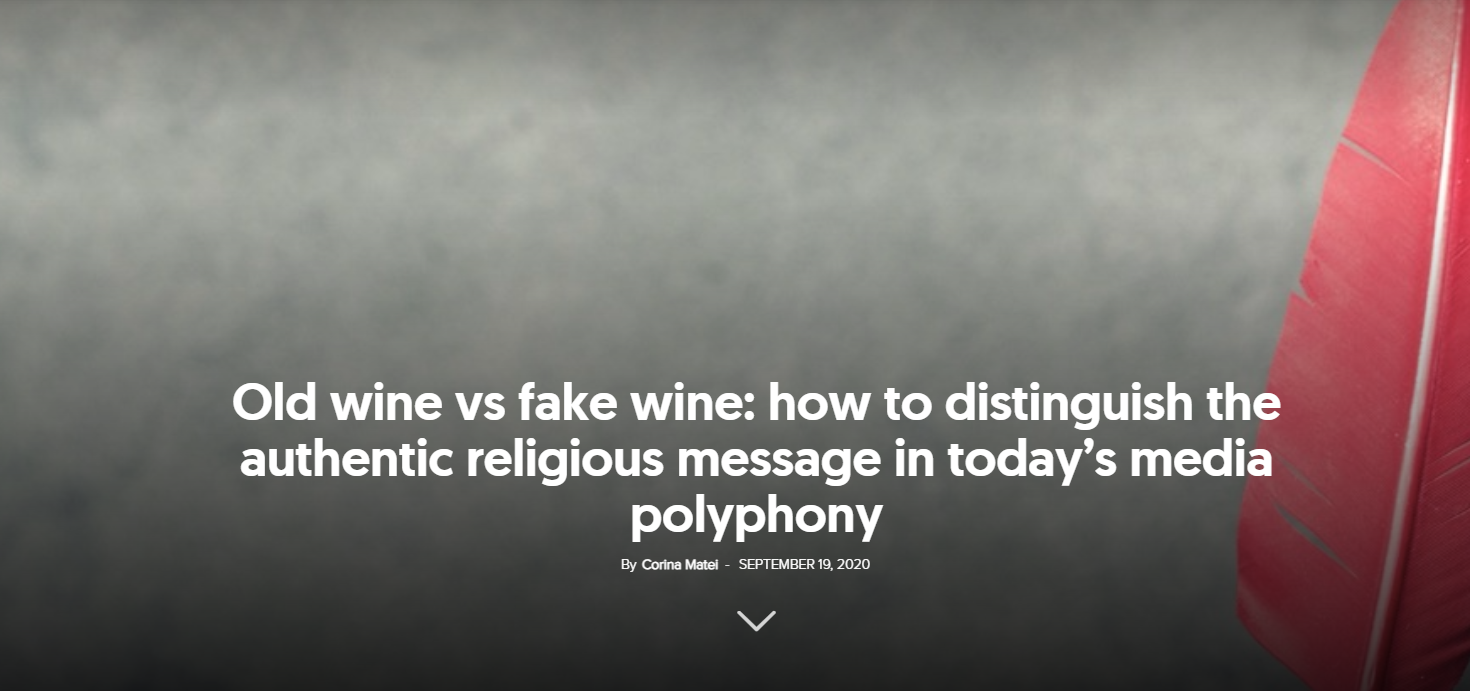We live in a world in which the news is far more pervasive than the events it reports. An event happens in one place but is almost instantly repeated and echoed in millions more. And while the event might be shocking, tragic or horrifying, a wider and sometimes greater toll is exacted by its reportage, by the slow-motion replays, by the breathless punditry and by the never-ceasing news cycle that is already looking for the next outrage before any careful analysis or compassionate response can be made in relation to the current “breaking story.”
Have you ever considered that it’s the people who sell us the news—and the ads in between—that invest the most in urging its imperative? Whether it’s the hourly news bulletins with their frequent headline updates in between, or the news ticker crawling across the bottom of the TV screen, we are urged to believe that their news programming, or news channel, is vital to any functional adult life.
But the place of the news in the workplace, at dinner parties or in social media conversations also reminds us of the assumed significance of the headlines of the day.
In The News: A User’s Manual, philosopher Alain de Botton endorses German philosopher, Georg Hegel’s, suggestion that the dominance of news has replaced religion “as our central source of guidance and our touchstone of authority. In the developed economies, the news now occupies a position of power at least equal to that formerly enjoyed by the faiths.”
He points to the morning and evening news bulletins mimicking the devotional rituals of previous generations but, more significantly, identifies the deference we give to “the news” as a source of meaning and even morality in our lives: “Here, too, we hope to receive revelations, learn who is good and bad, fathom suffering and understand the unfolding logic of existence. And here too, if we refuse to take part in the rituals, there could be imputations of heresy.”
As misguided as this might be, all this might have been manageable when it was simply the newspaper in the morning, occasional radio bulletins during the day, finishing with the evening TV news. But now it never stops—the news is on our phones, computers and other devices, always with us, always on, always breaking news.
Adding to the complexity is the inherent nature of news as a selection of the absurd. Important, valuable, beautiful and good things happen around us every day, but so many of these will never be “news.”
Instead, news celebrates the oddity, the first, the largest, the most shocking and mixes the most tragic with the trivialities of celebrity, sports results and tomorrow’s weather, which most days is unremarkable. It’s a bewildering cocktail, selected more for its capacity to catch and hold our attention—ironically, by never holding our attention, quickly shifting from one story or idea to the next—than an attempt to survey what is important for our lives and communities.
While there are many journalists who seek to tell significant and worthwhile stories, reasonable voices are often swamped by those that pander to our fears, insecurities and prejudices—and some commentators make a good living by doing just that. But even the voices and stories that do try to bring out our best are so easily lost in the mere multiplicity of information that seeks our attention.
De Botton contrasts news with religion in this significant sense. “Exactly like the news, religions want to tell us important things every day,” he writes. “But unlike the news, they know that if they tell us too much, in one go, and only once, then we will remember—and do—nothing.”
And here are the key questions about what our over-exposure to the news does to us. Does the news—even if only by the magnitude of half-told stories—overwhelm us into voyeuristic numbness? Does it pummel our hearts, making us more insular, anxious and entrenched? Or does it prompt us to compassionate response? If the news has become our assumed social religion, we must be aware of the values it builds into our lives and how our responses are lived in our actions.
Ignoring the world around us is certainly not an option. Because of the news, we understand the inter-connectedness of each of our lives in important ways. But whatever our personal faith, we must recognise the ways in which the news rivals those values and priorities, and that can be hard to do when we are incessantly called to attention by the louder voices of the media around us.
It isn’t heresy to conclude that some days we can simply turn it off. The world of news will continue without us. We need not feel guilty about not having every detail of each unfolding tragedy, gruesome atrocity, political posture or celebrity indiscretion. We can breathe deeply into the world in other and more positive ways.
You might also be interested in reading:
As de Botton concludes, “A flourishing life requires a capacity to recognise the times when the news no longer has anything original or important to teach us.” While the news might be religion-like, living well and living faithfully are rarely found in the headlines.
Nathan Brown is book editor at Signs Publishing Company in Warburton, Victoria. A version of this article first appeared on the Signs of the Times Australia/New Zealand website and is republished with permission.




















